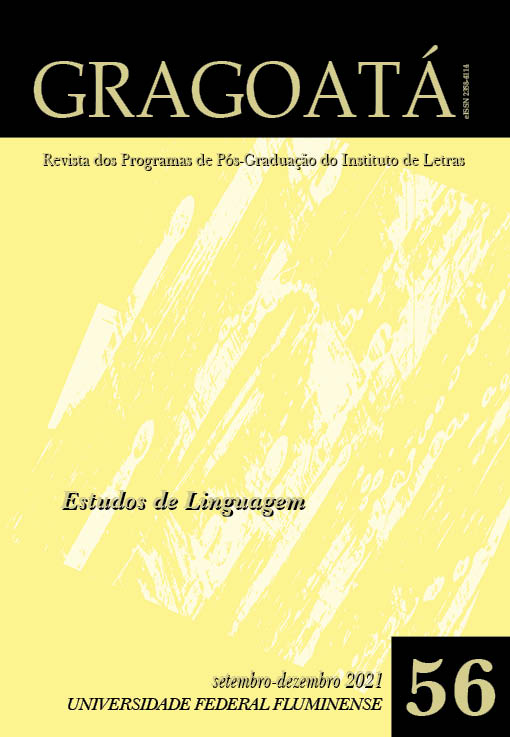Etnohistories in brazilian schools: getting closer to indigenous peoples
DOI:
https://doi.org/10.22409/gragoata.v26i56.49151Keywords:
Decolonialidade. Identidades indígenas. Literatura. Etno-histórias.Abstract
In this article, we aim at discussing indigenous literature and presenting some aspects to be considered in order to comply with the Law number 11.645 / 2008, which requires that ethnic-racial issues are worked at schools and Universities. For this, we seek support in specific laws that deal with ethnic issues to better contemplate the plural identity of the different Latin American peoples in contemporary times. Based on recent studies on literature and teaching (AMORIM; SILVA, 2019; MARTIN, 2015) and indigenous literature (WERÁ, 2017; MUNDURUKU, 2012), we describe how ethno-stories can be inserted in the school environment in order to respect their specifics. To achieve our goal, we expose elements to be considered from the moment of selection of materials till the reading activities and possible expansions. To illustrate our proposal, we choose the poetic text Pé no andar, by Gustavo Caboco (2018). More than coping with the Law through literary productions, we intend to contribute to a non-stereotyped way of approaching ethnic-racial issues, understanding the indigenous subject as a social being who sees in her/his literature a path for her/his visibility and the maintenance of collective history. Still, we hope to contribute to the ressignification of the struggle and the imaginary about different indigenous peoples and the understanding of the impossibility of complete fictionalization of the works.
Keywords: Decoloniality. Indigenous identities. Literature. Ethno-stories.
Downloads
Downloads
Published
How to Cite
Issue
Section
License
Authors who publish in Gragoatá agree to the following terms:
The authors retain the rights and give the journal the right to the first publication, simultaneously subject to a Creative Commons license CC-BY-NC 4.0, which allows sharing by third parties with due mention to the author and the first publication by Gragoatá.
Authors may enter into additional and separate contractual arrangements for the non-exclusive distribution of the published version of the work (for example, posting it in an institutional repository or publishing it in a book), with recognition of its initial publication in Gragoatá.

Gragoatá is licensed under a Creative Commons - Attribution-NonCommercial 4.0 International.











